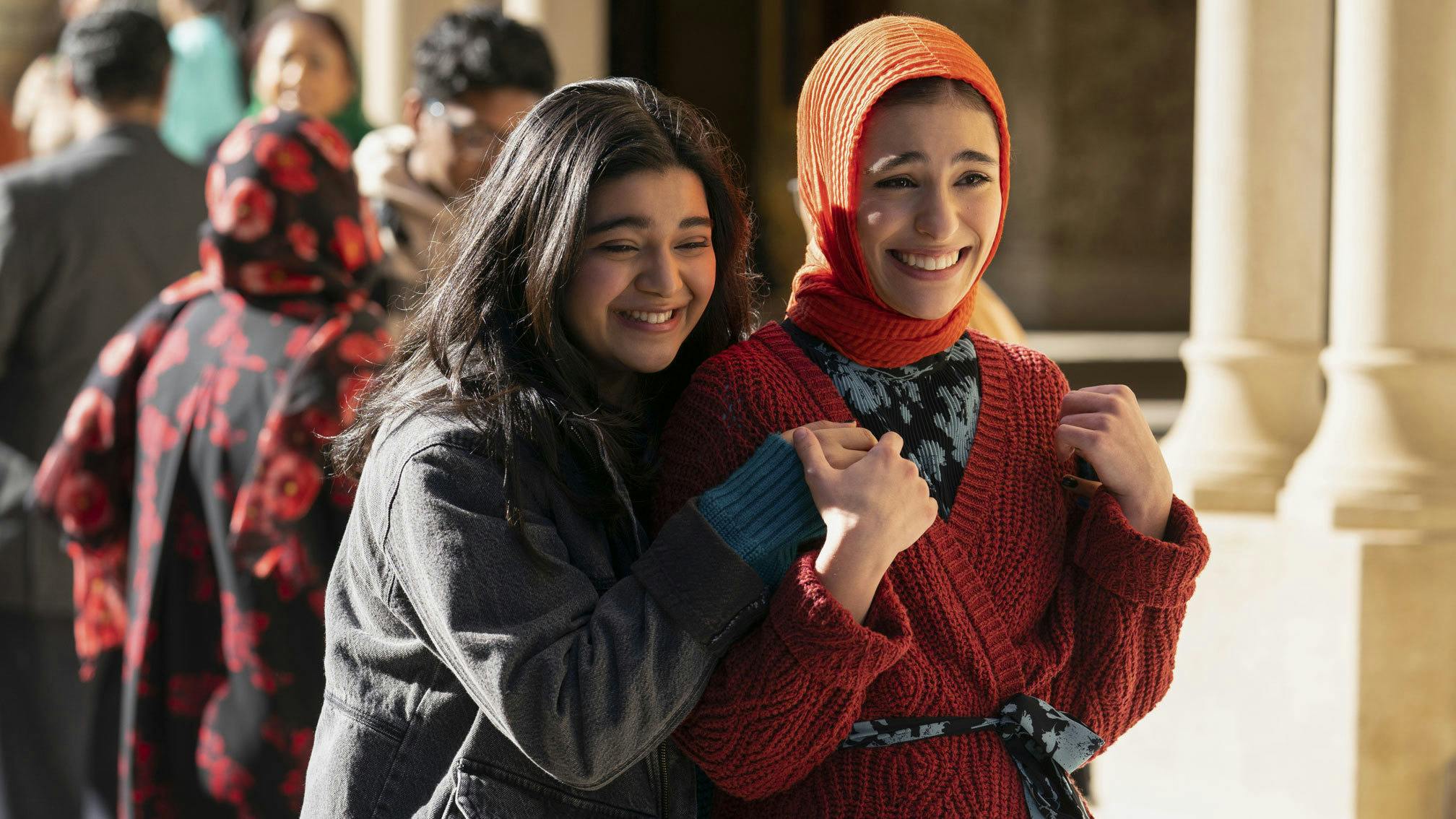As greater Muslim representation slips into the mainstream, there’s now scope to hear more stories coming from community fringes. From the die-hard comic book to the committed wannabe rock icons, it’s time we had our overlooked rough-cut stories told to bigger audiences.
Take Channel 4’s wonderfully riotous sitcom We Are Lady Parts. What began as a one-off online comedy short was given the holy green light to become a full-fledged series… and thank god it did! Hitting screens in 2021, it follows the lives of a rowdy all-female Muslim punk band on the search for the perfect guitarist to join their misfit gang. Crammed with unapologetic self-expression and fearless protagonists, …Lady Parts is the brilliant, silly, anarchistic brainchild of creator Nida Manzoor. Labelled as a “delightful freakshow” by one of its very own characters, the show shone the spotlight on the Black and Brown voices that have long been missing from the raucous punk scene. From an explosive lead singer facing cultural pressure from family to a closeted LGBTQ+ female drummer, it was unafraid to wade deep into the nuances of alternative identities.
These unconventional roles – like Trenton, a female Muslim hacker, from hit Prime series Mr. Robot – spotlight a refusal to conform to chalky stereotypes of South Asian and Muslim lives. Instead, these edgy shows upend expectations of the community and passed The Riz Test with flying colours. The expectation of the alternative is to be gloriously unconventional and different, so it’s about time networks take a chance on including the boisterous, minority voices screaming from the sidelines. After all, if the praise and ratings of Ms. Marvel, Lady Parts and Mr. Robot have taught us anything, it’s that audiences are willing to back shows with a real, alternative spirit.
